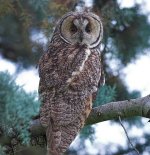tzanampeths
Well-known member
Judging from the pictures I've seen here, both lenses produce great results.
Myself being a bit simpleminded went with the prime, ie one control less = no zoom.
I must confess that I would love a closer focus though.
In conclusion I don't think anybody can go wrong buying any of those two. I'de be inclined to assume identical IQ and decide based on the other feature of the lenses.
All the best
Takis
Myself being a bit simpleminded went with the prime, ie one control less = no zoom.
I must confess that I would love a closer focus though.
In conclusion I don't think anybody can go wrong buying any of those two. I'de be inclined to assume identical IQ and decide based on the other feature of the lenses.
All the best
Takis






